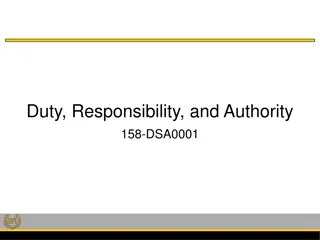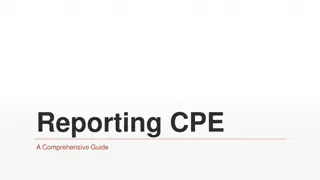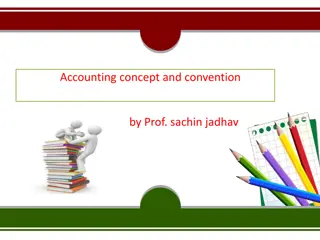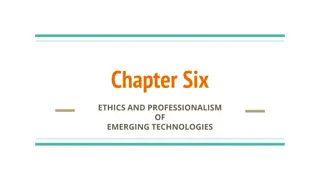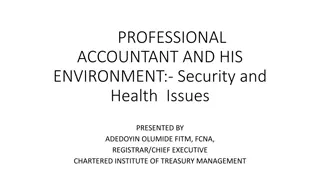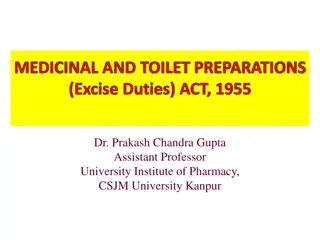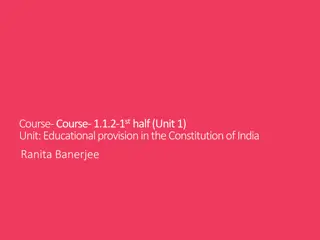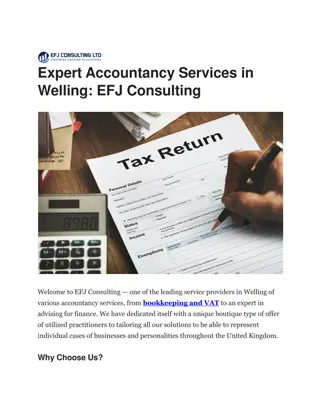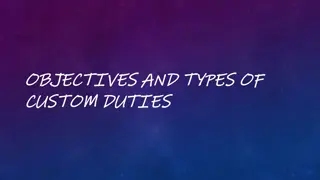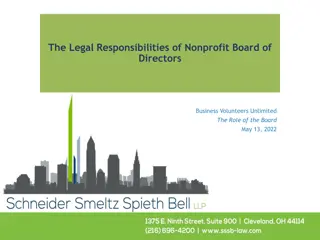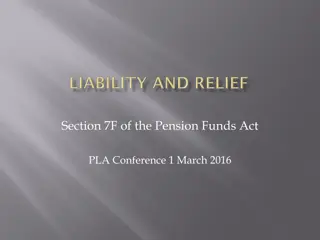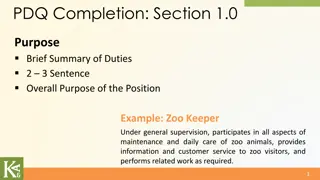Understanding Professional Duties in Accountancy
This informative content discusses various aspects of professional duties in accountancy, such as negligence, breach of duty of care, causation, asset valuation, and ethics. It covers topics like duty of care, foreseeability test, breach of duty standards, causation principles, and the accountants' duty to the public. The content emphasizes the importance of maintaining ethical standards in the field of accounting and highlights key responsibilities accountants owe to their clients, the public, and other stakeholders.
Download Presentation

Please find below an Image/Link to download the presentation.
The content on the website is provided AS IS for your information and personal use only. It may not be sold, licensed, or shared on other websites without obtaining consent from the author. Download presentation by click this link. If you encounter any issues during the download, it is possible that the publisher has removed the file from their server.
E N D
Presentation Transcript
Booster Bank Student Coaching
Negligence Duty of Care Owed by Defendant to Plaintiff Breach of the Duty of Care by the Defendant Causation Damages
Duty of Care Foreseeability Test: Accountants owe a duty of care to all foreseeable plaintiffs. Restatement View: Accountants owe a duty of care to members of a restricted group of third parties whom the accountants intend to influence or those whom the accountants know their clients intend to influence. Privity of Contract View: Accountants owe a duty of care to all parties with whom they have a privity of contract.
Breach of Duty of Care Professional Standard: In performing services, an auditor has the duty to have that degree of learning and skill ordinarily possessed by a reputable certified public accountant practicing in the same or a similar locality under similar circumstances. GAAP is Relevant: In determining whether the accountant fulfilled its professional duties, one may consider, among other evidence, whether the accountant s work complied with Generally Accepted Accounting Principles.
Causation Causal Connection: there must be a causal connection between the negligent conduct and the resulting injury. But For Test: But for the defendant s negligence, the plaintiff would not have sustained the loss.
Asset Valuation Notes exchanged for property, goods, or services are carried on the balance sheet: At the market value of the item exchanged if this is readily determinable. At the present value of the future cash receipts on the note discounted at the borrower s rate of interest.
Accountants Duty of Care to the Public Members of the AICPA accept the responsibility to serve the public interest with integrity, objectivity, and due professional care. Members may encounter pressures from the groups it serves (including clients, credit grantors, etc.) When members fulfill their responsibility to the public, client and employers interests are best served.
Ethics Definition The study of what is right and wrong. Refers to actions that would be harmful to others or result in social consequences.
The Difference Between Ethics and Laws Similarities Laws and Ethics both refer to proper and improper behavior Differences Laws are formal: written rules Ethics are informal: many subtleties
How to Analyze Ethical Problems in Business Guidelines to use to help us make ethical decisions Utility: Cost-Benefit Analysis Rights: Determining and Protecting Entitlements Justice: Is it fair?







